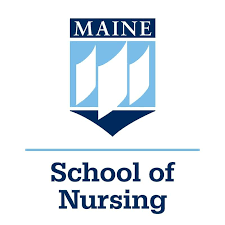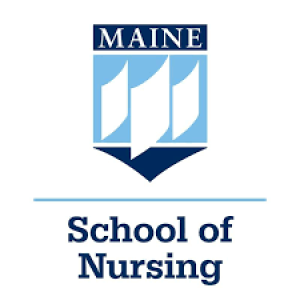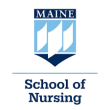UMaine School of Nursing receives $1.7M grant to help diversify Maine workforce
ORONO — Increasing the diversity of Maine’s workforce in nursing is the focus of a more than $1.7 million grant from the federal Health Resources and Services Administration to the University of Maine School of Nursing, in partnership with Northern Light Health and Morgan State University.
The four-year award by HRSA, an agency of the U.S. Department of Health and Human Services, will address the need to increase nursing education opportunities for individuals from financially disadvantaged and underrepresented ethnic and racial minorities in Maine and, ultimately, help address the state’s shortage of nurses.
A priority of the initiative, Promoting Diversity in Nursing Education, is to capitalize on the social, cultural, and ethnic resources for in-state student diversity, says Kelley Strout, in a UMaine news release. Strout is director of the School of Nursing and principal investigator on the initiative that will include first-generation college students.
Targeted student recruitment in Maine will help ensure that graduating nurses join and remain a part of communities where their skills are most needed, Strout says. Increasing diversity of both students and faculty in the School of Nursing will prepare graduates to meet workforce needs fully.
The initiative’s goals align with the mission of the UMaine President’s Council on Diversity, Equity, and Inclusion.
The School of Nursing offers one of the university’s most sought-after degree programs, receiving upward of 1,400 applications for approximately 80 seats available in the fall semesters of the past five years. Nearly half of UMaine nursing students have been from out of state, and many do not remain in Maine after graduation.
“Place-bound and place-invested nurses are essential to meet the long-term needs of Maine,” Strout says. “Strategic recruitment campaigns will help identify the students best positioned to thrive in the nursing profession and will add to the state’s workforce diversity.”
The nursing workforce diversity initiative has three goals: increase access to nursing education for racial and ethnic minority and first-generation students; support the academic and professional success of racial and ethnic minority and first-generation nursing students in the bachelor’s degree program, and increase exposure and representation of racial minorities among the School of Nursing faculty.
Among the objectives in the first year of the grant, the School of Nursing will develop evidence-based holistic admission criteria with the assistance of the American Association of Colleges of Nursing. The goal is to reform the school’s current narrow admissions criteria that are now based on two quantitative academic measures — high school grade point average and SAT score of 1110 or higher — to be more inclusive and reflective of such factors as certified nursing assistant and other health care-related work experience, and early college coursework.
A new UMaine nursing student success coordinator will focus on student recruitment, retention and graduation as part of the holistic approach.
UMaine faculty in nursing also will tap the health care-focused diversity, equity and inclusion resources of Northern Light Health. Last fall, Northern Light established a Diversity, Equity, and Inclusion Advisory Council, directed by Marwa Hassanien. Its DEI curriculum for Northern Light staff includes those at Eastern Maine Medical Center, the primary clinical training site for the School of Nursing.
“This Initiative serves two essential purposes. First, it will help increase the diversity of our workforce, which can be challenging in a fairly homogeneous state like Maine. Second, it will complement some of Northern Light Health’s innovative work to recruit and retain nurses,” says Catharine MacLaren, vice president, Talent and Diversity, Northern Light Health. “We are fortunate to have such a valued partner as the University of Maine to help address a critical nursing shortage, which affects our health care system and our entire state.”
A faculty exchange program with Morgan State University, Maryland’s preeminent public urban research university, and the state’s largest historically Black college and university, will be a critical resource in the development of curricula and program activities that are keenly receptive to the social determinants that often impede access to education and academic success of students from diverse, disadvantaged backgrounds. Morgan will focus initially on how best to support high-risk students, creating — in partnership with UMaine and Northern Light Heath — training and learning opportunities for faculty. The long-term goal is to have semester-long faculty exchanges between the UMaine School of Nursing and the nursing program in Morgan State’s School of Community Health and Policy.
“Our nursing program at Morgan is extremely pleased to be part of this meaningful alliance brought together by a joint commitment to diversity, equity and inclusion — both in theory and in practice,” says Maija Anderson, DNP, APRN, SAMFE, director of nursing at Morgan State University. “The HRSA grant award affords us the resources to develop opportunities of mutual benefit, to include short- and medium-term exchanges for faculty teaching across the nursing curriculum, as well as advance workforce diversity in the nursing profession.”
About Morgan
Morgan State University, founded in 1867, is a Carnegie-classified high research (R2) institution offering nearly 120 academic programs leading to degrees from the baccalaureate to the doctorate. As Maryland’s Preeminent Public Urban Research University, and the only university to have its entire campus designated as a National Treasure by the National Trust for Historic Preservation, Morgan serves a multiethnic and multiracial student body and seeks to ensure that the doors of higher education are opened as wide as possible to as many as possible. For more information about Morgan State University, visit morgan.edu.
About the University of Maine:
The University of Maine, founded in Orono in 1865, is the state's land grant, sea grant and space grant university. It is located on Marsh Island in the homeland of the Penobscot Nation. As Maine's flagship public university, UMaine has a statewide mission of teaching, research and economic development, and community service. UMaine is the state's only public research university and among the most comprehensive higher education institutions in the Northeast. It attracts students from all 50 states and more than 75 countries. UMaine currently enrolls 11,741 undergraduate and graduate students who have opportunities to participate in groundbreaking research with world-class scholars. UMaine offers more than 100 degree programs through which students can earn master's, doctoral or professional science master's degrees, as well as graduate certificates. The university promotes environmental stewardship, with substantial efforts campuswide to conserve energy, recycle and adhere to green building standards in new construction. For more information about UMaine, visit umaine.edu.
Event Date
Address
United States

























